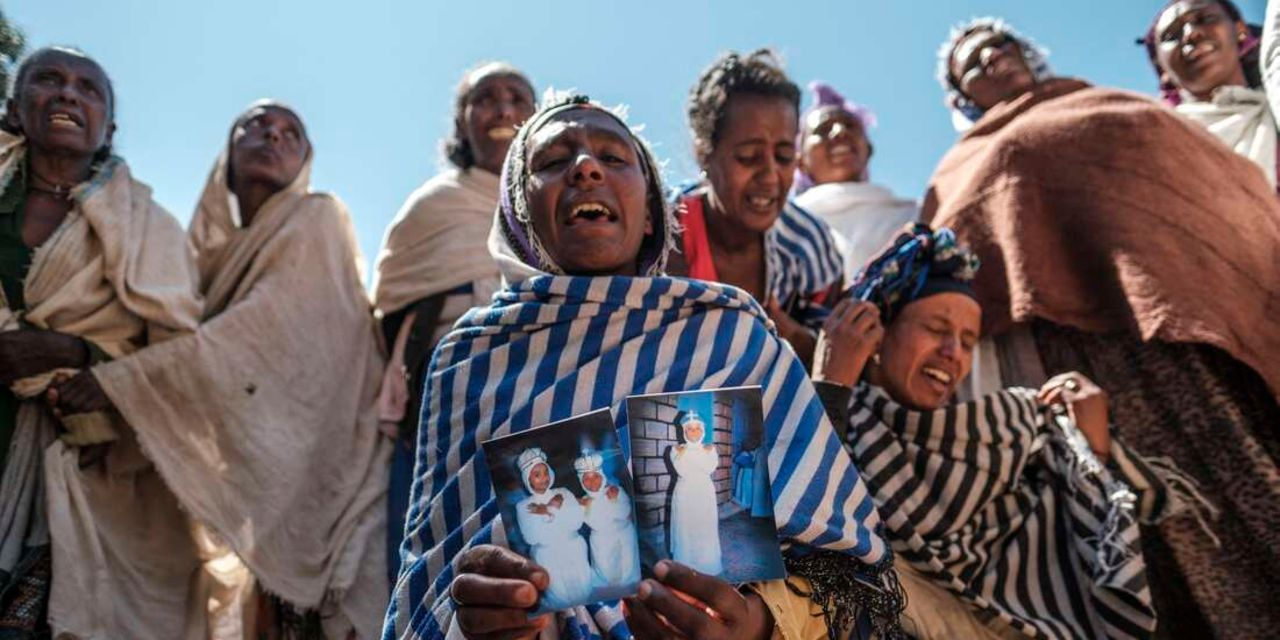The African Union (AU) has launched an inquiry into human rights violations in Tigray, northern Ethiopia, becoming the first continental effort to investigate the conflict that began in November 4 when Prime Minister Abiy Ahmed ordered a military offensive against its regional forces.
A statement from the AU headquarters in Addis Ababa said the team formed under the African Commission on Human and People’s Rights will begin preliminary work in Banjul, the Gambia, after which it will travel to Tigray to speak with locals.
It will be the first time the continental body, headquartered in Ethiopia, is picking up the task of establishing the truth about atrocities in Tigray, where Ethiopian forces have been fighting the Tigray People’s Liberation Front (TPLF), once a ruling party under the late leader Meles Zenawi, but now considered a terror group by Addis Ababa.
“The Commission of Inquiry will begin its work in Banjul, Republic of The Gambia. It will conduct investigations on the ground and in neighbouring countries when the conditions are met,” a statement from the AU said on Wednesday evening.
The Commission will sit for an initial three months, although AU said it could be extended.
“The Commission of Inquiry will adhere to the principles of independence, confidentiality, impartiality and neutrality, ensuring the protection of those with whom it collaborates.”
The Commission will run under the provisions of Article 45 of the African Charter on Human and People’s Rights which allows it to speak with victims, alleged villains and other witnesses as well as collect documents from relevant authorities.
The Commission of Inquiry was officially formed in May following an uproar on alleged atrocities in Tigray. Although it has immunity under the Charter, its success or failure will depend on the cooperation of stakeholders, including neighbouring countries like Eritrea and Sudan, which have both been drawn into the conflict.
Eritrean forces have been accused of carrying out a massacre and killing more than a hundred civilians in Tigray, while Sudan has hosted more than 40,000 refugees fleeing Ethiopia since the crisis began.
Its final report, however, could only be a recommendation to be implemented by member states, including Ethiopia.
This inquiry is formally being labelled a fact-finding mission to determine whether the events in Tigray constitute “serious and massive violations of human rights” as defined under international law.
Full-blown crisis
The Tigray crisis, which the Ethiopian government labels a domestic law enforcement operation, has turned into an arena of alleged human rights violations, ostensibly committed by State soldiers and the Eritrean troops fighting alongside them.
Amnesty International, Human Rights Watch and other rights groups have claimed massacres were committed by Eritrean troops. There are also claims of rape committed by soldiers.
Ethiopia, however, officially denies the atrocities were sanctioned, but did agree to investigate through the Ethiopia Human Rights Commission in collaboration with the UN Human Rights Council “as part of the much-needed accountability process for the victims” or rape, murder and other torture.
Last week, a leaked report of the Special Rapporteur on Human Rights for Eritrea claimed there was credible information Eritrean troops also dragged Somalia’s trainee soldiers to the battlefront. Both countries dismissed the allegation, although Eritrean officials, the Rapporteur claimed, refused to meet him to discuss the findings.
Hunger, starvation
The UN says up to 90 per cent of the six million people in Tigray are facing starvation, and some 400,000 people were already starving, figures the Ethiopian government has dismissed as alarmist.
Demeke Mekonen, Ethiopia’s deputy prime minister and minister for foreign affairs, told the international community on Tuesday authorities have been filtering humanitarian access after learning there were weapons being smuggled to TPLF.
“It is extremely regrettable to see that some within the international community have embarked on a mission to undermine the unity, territorial integrity and the cohesion of the Ethiopian state, under the guise of humanitarian concern,” Demeke said, but denied there was a policy to starve the Tigrinya people as a weapon of war.
“In the first round of humanitarian response, effort was made to reach out to 4.5 million people in the Tigray region through the delivery of food and non-food items. In the second and third rounds, the relief efforts were able to reach out to 5.2 million people”, Demeke noted.
Last week, a joint EU and US statement called for a ceasefire and access for aid workers, and demanded an independent inquiry to find out those who committed atrocities.
“We have continuously called for an end to the violence and for unfettered humanitarian access to all parts of Tigray, but we are witnessing increasing restrictions,” they said.
“Using starvation of civilians as a weapon of war is putting at risk the lives of millions. In addition, we are seeing wide-scale human suffering that is entirely preventable. Systematic violence is being inflicted upon civilians, including widespread sexual violence, and extra-judicial and ethnically-motivated killings.”

